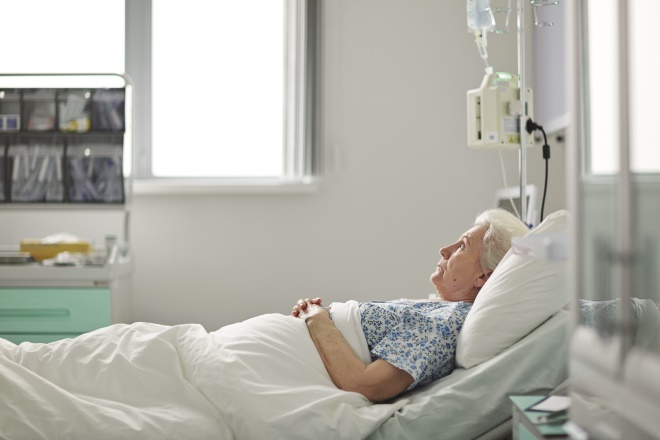
Shutterstock.com
The discharge medicines service (DMS) could have saved more than 17,000 bed days within a three-month time period, NHS England has said.
As part of the DMS, patients are referred to community pharmacy after being discharged from hospital, where pharmacy staff compare the medicines prescribed at discharge with those taken before admission to ensure that medicines awaiting collection are still appropriate.
Speaking at a National Pharmacy Association conference on 5 July 2021, Lisa Simpson, deputy director of community pharmacy strategy and contracts at NHS England, said “about a fifth of pharmacies have had referrals to date” from hospital trusts.
However, she said there were no data currently available on the number of trusts that have referred patients to pharmacies.
The DMS was launched as an essential service on 15 February 2021, following a delay owing to the COVID-19 pandemic.
A slide accompanying Simpson’s presentation showed that, between March and May 2021 inclusive, 13,265 patients have been referred to 2,522 pharmacies through the service.
“Extrapolating on this referral data can give a really good indication of the impact that this will have had on the acute sector in terms of avoided admissions and bed days avoided,” Simpson said.
The slides also showed that, between March and May 2021, the DMS could have helped avoid 1,326 admissions at 30 days associated with medicines and 17,238 bed days.
“This is purely an extrapolation at this point, and the central team is working hard behind the scenes on how we properly evidence the value and how we can show the patient outcomes that have been achieved from your clinical inputs,” Simpson continued.
She added that the DMS “ticks all the boxes from the integration perspective”.
“It establishes your contributions in that context of being an integrated part of the NHS pathway,” she added. “We absolutely know from the evidence base that you are making care safer.”
In her presentation outlining the new services in community pharmacy, Simpson also outlined the role of pharmacies in delivering structured medication reviews (SMRs).
NHS England guidance states that “clinical pharmacists primarily are expected to conduct SMRs” in primary care networks (PCNs), with funding allocated specifically for the hiring of such pharmacists.
However, Simpson said that although “it is the PCN that is funded to undertake SMRs … that’s not to say community pharmacy can’t support that”.
Assuming that the relevant clinical training is in place, Simpson said: “A community pharmacist could work as part of the PCN team either in a sessional way or other way, if they have a portfolio type career … or alternatively the community pharmacy itself could be used by the PCN to undertake some role in SMRs.”
These ideas had previously been put forward in a report by the Community Pharmacy Workforce Development Group, which said that community pharmacists are “ideally placed to conduct SMRs”.
“With appropriate funding and support (including records access) community pharmacists can complete services, including SMRs, both within the community pharmacy and off-site,” the report said.
“This may require changes to the current funding arrangements, which stipulate the direct employment of pharmacists within PCNs.”
- The headline of this article was amended on 8 July 2021 to reflect that these conclusions regarding hospital admissions and bed days were made on extrapolated data, rather than actual data
READ MORE: Community pharmacy will transform post-hospital care in 2021


